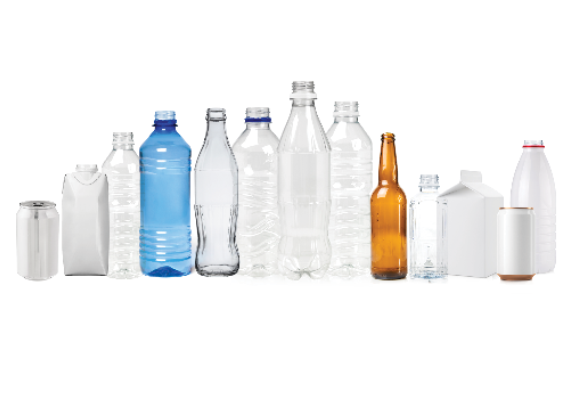Understanding Your Waste: where it goes and terminology
Recycle Right provides an A-Z Disposal Guide to help residents to find the correct disposal methods for particular items.
Recycle Right provides a Find My Nearest tool to help locate those recycling and drop-off centres in the Mandurah area for items that cannot go in your kerbside bin.
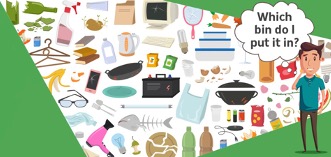
Recycling is a simple way that everyone can help the environment. The City of Mandurah provides residents with a separate bin for recycling. These bins are easily identified with a yellow lid. Contents from your recycling bins are transported to the Materials Recovery Facility (MRF) in South Guilford for sorting where they are then sold for reprocessing.
Find out more:
Cleanaway, in partnership with the City, operate the Waste Management Centre, located in Parklands. The facility is equipped to accept numerous items for proper disposal and handles both household and commercial waste.
The centre offers free disposal for a range of different items including: household hazardous waste (such as batteries, paint, e-waste, gas bottles, and engine oil), scrap metal (like fridges and washing machines), and cardboard.
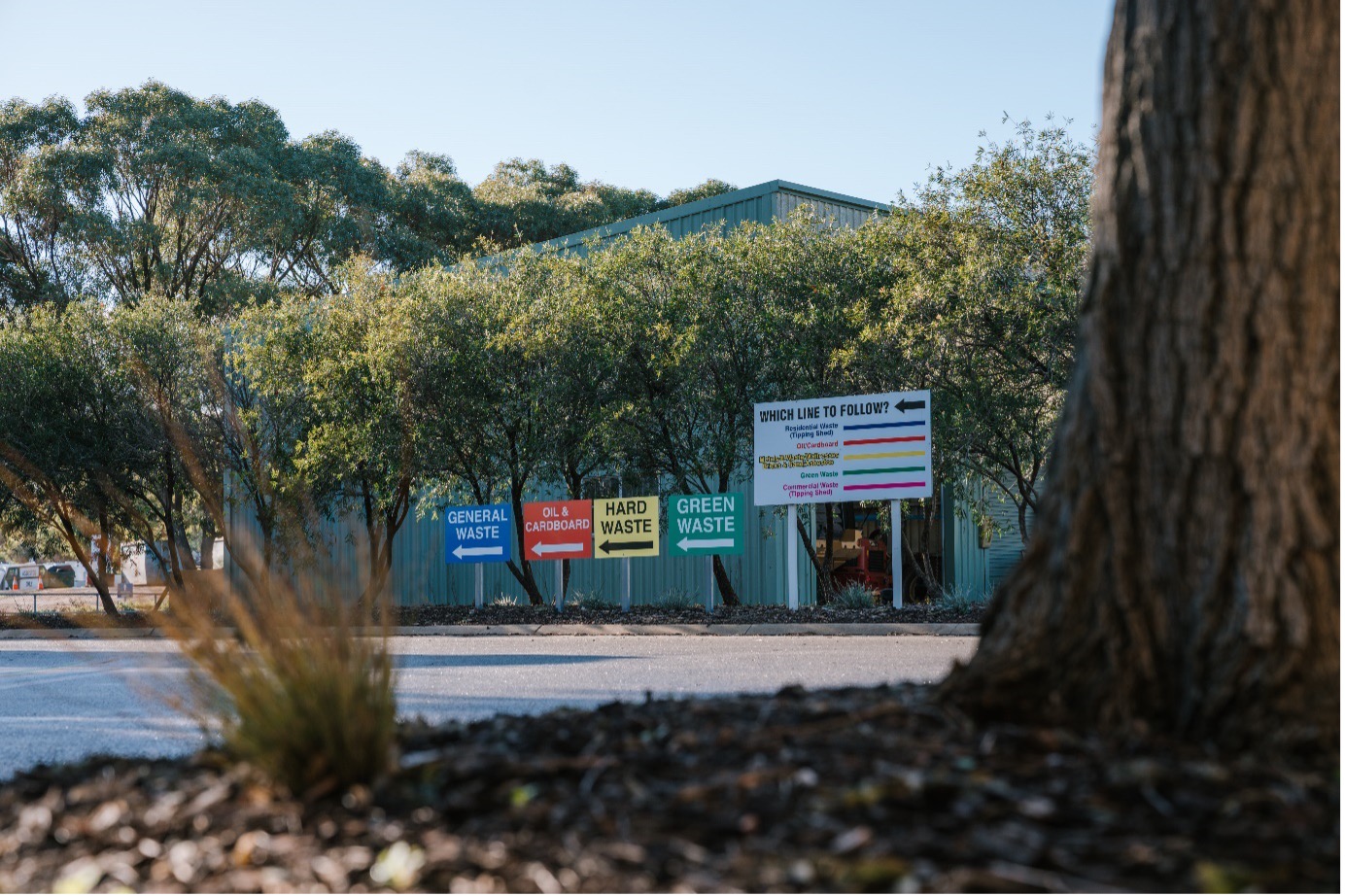
Understanding plastic types and their recyclability can be confusing. The universal recycling symbol often resembles the plastic identification codes, but they have different meanings. If a product features the three-arrow symbol without a number in the middle, it indicates that the item is recyclable. However, if the symbol includes a number, it refers to a plastic identification code, which helps identify the specific material used.
There are seven plastic identification codes that manufacturers use to specify the type of plastic their products are made from. It's important to note that the symbol alone doesn't guarantee recyclability. In the City of Mandurah, we accept plastics with codes 1 and 2 in the yellow kerbside bin, while codes 3 to 7 should either be repurposed or placed in your general waste bin.
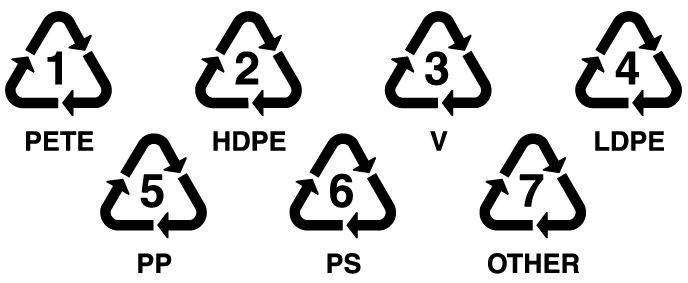
The Australasian Recycling Label (ARL) removes recycling confusion, saves time and reduces waste.
What is the ARL?
The ARL is an evidence based standardised system that provides you with easy to understand recycling information for packaging. It shows what needs to be done with each piece of a package to dispose of it in the best way.
Why do we need it?
Australian and New Zealanders are keen to recycle but are often confused about what packaging is recyclable and what is not. The ARL is designed to reduce this confusion with clear, on-pack instructions on what to do.
Many products already have the Australasian Recycling Label and many more items are being labelled everyday.
What does it look like?

Plastics have become deeply embedded in our daily lives, offering affordability, convenience, and versatility across a wide range of uses. However, many single-use plastics ultimately end up as litter or in landfills, contributing significantly to environmental pollution. In an effort to combat this issue, the Western Australian Government introduced a state-wide ban on the supply of certain plastic items, effective from July 1, 2022.
The ban does not apply to:
- items pre-packaged offsite in food or beverage products (e.g., straw attached to juice box)
- items intended for supply outside WA or business-to-business transport
- plastic straws provided in certain situations for people with a disability or healthcare need
The ban applies to:
- conventional plastics made from fossil fuels, as well as plant-based plastics (limited exemptions apply)
- items made of plastic in whole or part (including linings, coatings, and laminates)
- items sold or given away
- items supplied individually or in packets
What items are banned?
Banned as of March 2025:
- Balloon releases
- All plastic shopping bags with handles
- Plastic produce bags intended for fruit and vegetables
- Disposable plastic utensils - straws, stirrers, and cutlery
- Disposable plastic foodware and lids - plates, bowls, and food containers
- Expanded polystyrene food containers and trays
- Disposable plastic cups and lids for cold and hot drinks
- Loose-fill expanded plastic packaging
- EPS cups and EPS trays for raw meat and seafood
- Degradable plastics
- Disposable cotton buds with plastic stems
- Microbeads in rinse-off personal care, cosmetic and cleaning products
From 1 July 2025:
- Moulded or cut expanded plastic packaging
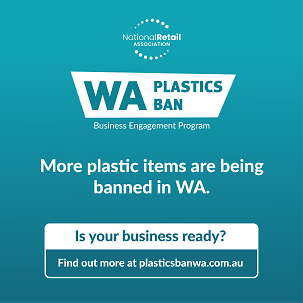
Degradable products are designed with chemicals that enable the plastic to break down and disintegrate over time when exposed to sunlight and heat. When released into the environment, they fragment into tiny plastic particles, which cause harm to our environment, wildlife and pollutes our waterways.
Biodegradable products are typically plastics infused with microorganisms that help them decompose. While they break down more readily than traditional plastics, they often degrade into microplastics.
Bioplastics are a type of biodegradable material derived from renewable resources, such as plants or other biological sources, offering an eco-friendlier alternative to conventional plastics.
Compostable products are made from natural materials, break down without releasing toxic substances, then turning into compost when processed through a composting system. These products are typically made from plant starch and are broken down by microbial activity. Opting for compostable materials is the best choice for the environment.
There are two symbols that are used to identify compostable items. These items are not recyclable and belong in the general waste bin.
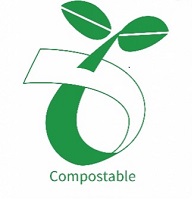

Compostable items require industrial composting processes to break down, involving specific conditions such as high heat, time, and volume. If you have at-home composting system, ensure items have the ‘Home Compostable’ symbol.
With the rise of compostable materials replacing single-use plastics, consumers still need to be aware that the best option is to avoid items that are used once and disposed of straight after. These items include coffee cups, cutlery, plates, and takeaway food packaging – they are sustainable alternatives like reusable storage containers, beeswax wraps and KeepCup’s.
Crazing takeaway? Ask your food vendor if they are willing to accept your clean reusable container rather than their single-use packaging. They may even give you a discount!
Reducing Waste at Home
This guide is designed to help you identify plastic items you use regularly, including single-use plastics, and make simple swaps to create more sustainable habits.
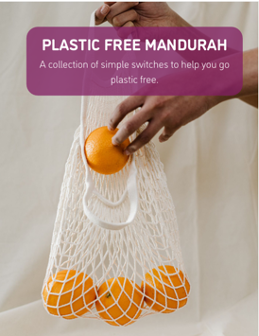
Grow It Local is an online local grow community, celebrating backyard, balcony, community and window-sill farmers. The platform is FREE for Mandurah residents.
The community can be inspired by growing stories and connecting with others, sharing knowledge, expertise, produce and recipes. Grow It Local’s mission is to make growing more accessible, getting more people growing, sharing, and eating locally grown foods. The online community provides a connection to nature and community, inspiring positive health & wellbeing, increasing composting and reducing organic waste to landfill in a fun and delicious way.
Join the Mandurah Grow Community here: Home - Grow it Local
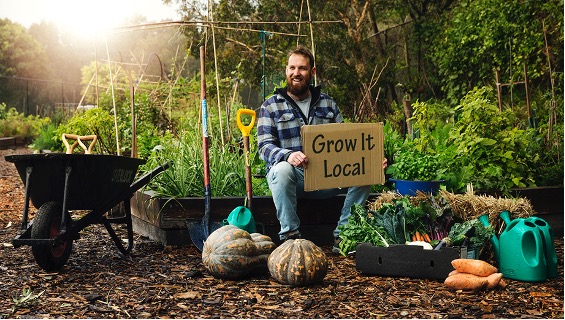
Containers For Change is a recycling program that aims at reducing litter and promoting recycling. The initiative incentivizes individuals, groups, and businesses to collect and return eligible beverage containers, such as bottles and cans, in exchange for a 10-cent refund for each container. Once collected, the containers are sorted, processed, and recycled, contributing to environmental sustainability by reducing waste and conserving resources.
There are several refund points in Mandurah.
Bag drop locations:
- Mandurah Recycling - 13 Gordon Road, Mandurah (Monday to Saturday)
- Good Sammy Recycling - 120 Pinjarra Road, Mandurah (Monday to Sunday)
- Community Recycling WA Mandurah Central - Lane Group Stadium, Clarice Street, Mandurah (24/7)
- Community Recycling WA Dawesville - Ocean Road Sporting Pavilion, Moora Close, Dawesville (24/7)
- Community Recycling WA Erskine - 39 Galbraith Loop, Erskine (Monday to Saturday 8am-4pm)
Depot locations:
- Mandurah Recycling - 13 Gordon Road, Mandurah (Monday to Saturday)
- Containers for Cash Mandurah - 5 Rafferty Road, Mandurah (Monday to Sunday)
- Community Recycling WA Erskine - 39 Galbraith Loop, Erskine (Monday to Saturday 8am-4pm)
- Community Recycling WA Mandurah Central - Lane Group Stadium, Clarice Street, Mandurah (Monday to Wednesday 9am-1pm, Thursday 1pm-5pm)
Pop up
- Community Recycling Mandurah Central - Lane Group Stadium, Clarice Street, Mandurah (Monday to Thursday)
Further information about these refund points (opening times, payment methods, contact details, etc.) can be found on the Containers for Change website.
The Containers for Change program aims to:
- Increase recovery and recycling of empty beverage containers
- Reduce the number of empty beverage containers that are disposed of as litter or to landfill
- Provide opportunities to social enterprise and benefits for community organisations
- Create opportunities for employment
- Complement existing collection and recycling activities for recyclable waste
Collect Eligible Containers
Most aluminium, glass, plastic, steel and liquid paperboard containers between 150ml and 3L are eligible for a refund. The scheme targets beverage containers most commonly seen as litter. Check if your container is eligible for a refund below.
Please be sure that all containers are empty and have their lids removed.
Eligible Items
- Aluminium, steel, plastic (HDPE/PET), glass, liquid paperboard
- From 150 millilitres to 3 litres
- Purchased in WA
- Displays the refund mark
- Be an approved container
Ineligible Items
- Glass containers which have contained wine or pure spirits
- Plain milk containers
- Containers 1 litre or more which have contained flavoured milk, pure fruit or vegetable juice, cask wine or cask water
- Concentrated/ Undiluted cordials or syrup containers
- Registered health tonics
Note: Most ineligible containers can still be recycled through Councils kerbside recycling collection.
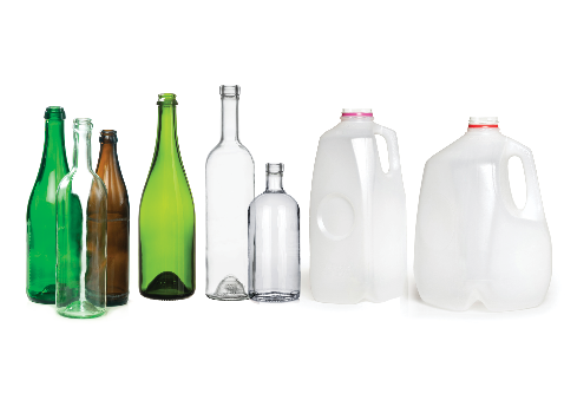
Founded by Ronni Kahn AO in 2004 after noticing the huge volume of food going to waste, OzHarvest quickly grew to become Australia’s leading food rescue organisation. Their free downloadable tools to help fight food waste at home.
Find out more here: https://www.ozharvest.org/fight-food-waste/
Nespresso provides a free recycling program to help manage coffee pod waste. In Mandurah, you can conveniently drop off your used pods at the following locations:
Mandurah Recycling: 13 Gordon Road, Mandurah (Monday to Saturday)
Containers for Cash Mandurah: 5 Rafferty Road, Mandurah (Monday to Sunday)
Alternatively, you can reduce waste at home by removing the coffee grounds (which can be composted if possible), 'stacking and squishing' the aluminium pods, and placing them in an aluminium tin for recycling.
Coffee pods are a significant contributor to landfill waste, with over 15 billion pods discarded globally each year. These small, single-use items take hundreds of years to decompose, releasing harmful chemicals and microplastics into the environment. By recycling your coffee pods, you help reduce the amount of waste that ends up in our landfills, minimising the environmental impact.
For an even more sustainable option, consider switching to reusable or compostable coffee pods. Reusable pods can be refilled with your favourite coffee grounds, reducing waste over time. Compostable pods, on the other hand, break down naturally and return nutrients to the soil, making them an eco-friendly alternative.
Every effort to reduce coffee pods waste helps protect our environment and contributes to a more sustainable future.
Dealing with dog waste at home information brochure
Responsibly manage your dog’s waste to benefit the environment and your garden!
Reduce your dog’s carbon paw print by:
- Bury in the garden: dig a hole in the garden, add poo, cover with soil and repeat. Avoid burials in one spot
- Worm Farm: create a worm farm solely for dog poo – worms can even take care of dog hair!
- Compost: check out special composting bins online or add to your existing compost bin. You can give make a DIY version utilising old buckets!
Important Note: Dog poo can cause disease in humans. Do not handle dog poo with your bare hands (use a spade or wear gloves). Do not put dog waste compost/worm castings on or near edible vegetable, herb, or food gardens.
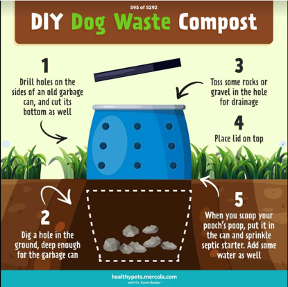
Get Involved
Some items should not be placed in the household waste bin.
The City has installed recycling hubs for these tricky waste items to allow materials to be recovered from the waste stream and avoid waste ending up in landfill.
What can I take to the recycling hubs?
- household batteries
- CFL light globes
- aerosol cans
- mobile phones and devices
Where can I find the recycling hubs?
Recycling hubs can be found at:
- The City's Administration Building - 3 Peel St, Mandurah
- Lakelands Library
- Mandurah Library
- Mandurah Aquatic and Recreation Centre
- Billy Dower Youth Centre
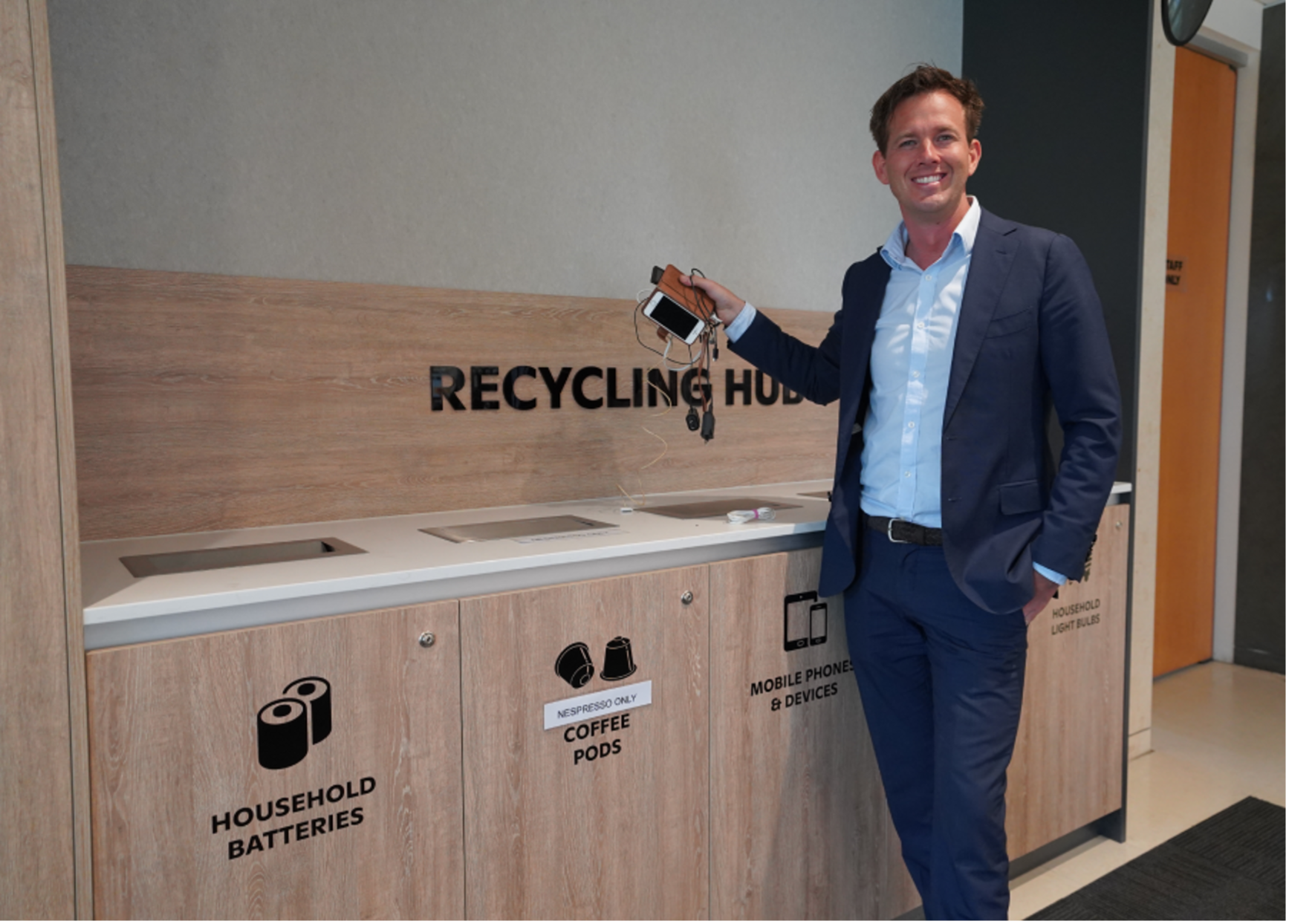
The Community Gardens offer a range of workshops, gardening information and resources for Mandurah as well as providing volunteer and member opportunities
Mandurah Community Garden
Lakelands Community Garden
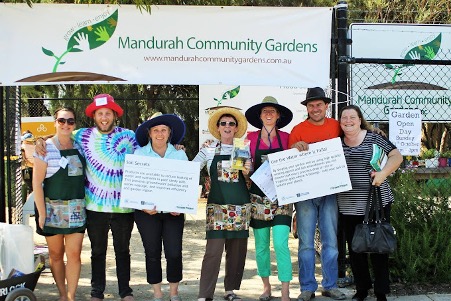
Coastal Waste Warriors is Mandurah’s dedicated volunteer Clean Up Crew with monthly beach clean ups – everyone is welcome!
Find out how to get involved: https://coastalwastewarriors.com.au/get-involved/
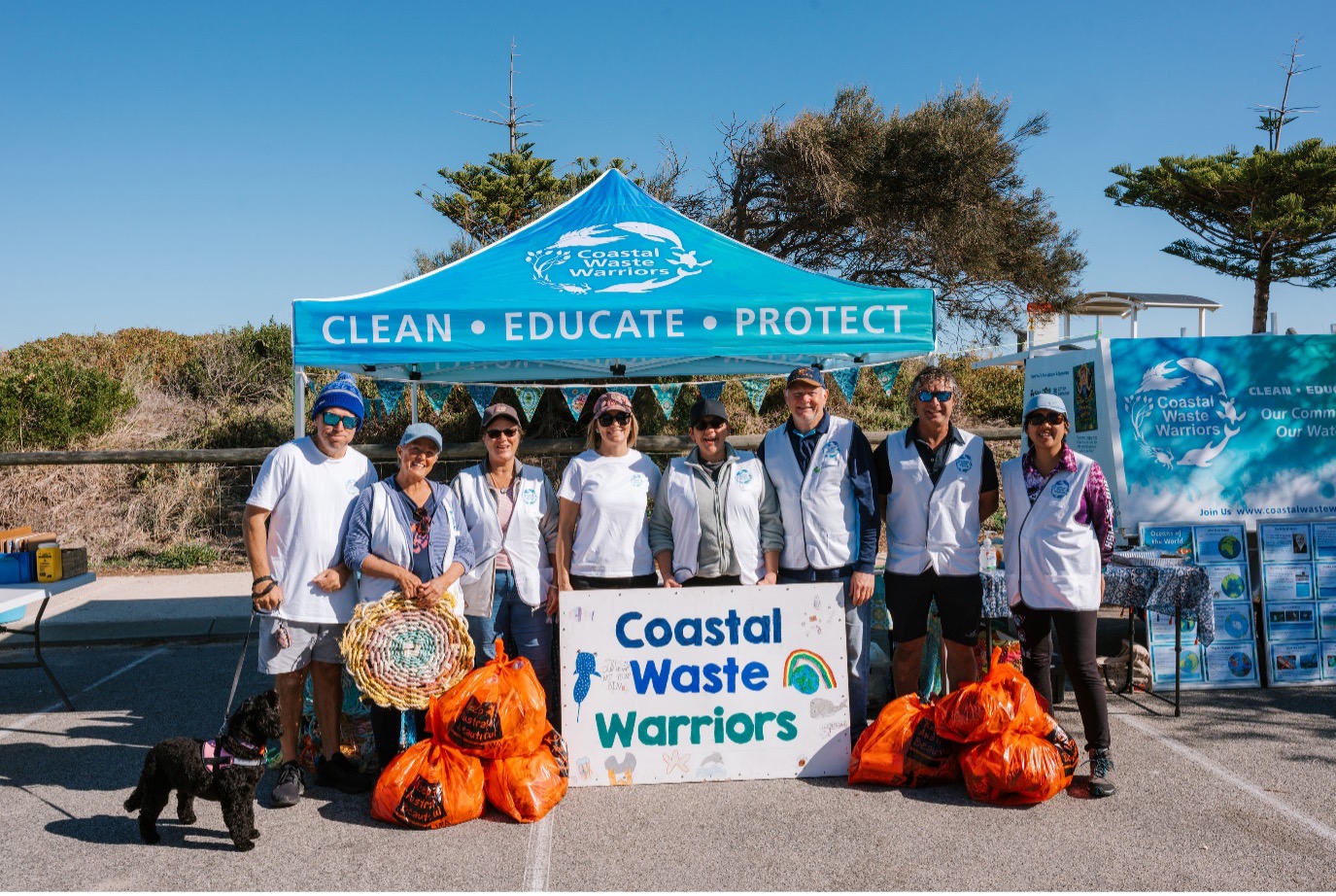
Lakelands Repair Café provides a free service to repair, mend and fix broken clothing, toys, ceramics, small furniture, and other items with the help of amazing volunteers!
Repairing items is both good for our wallets and for the planet!

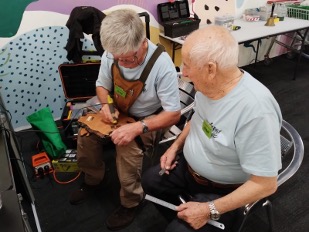
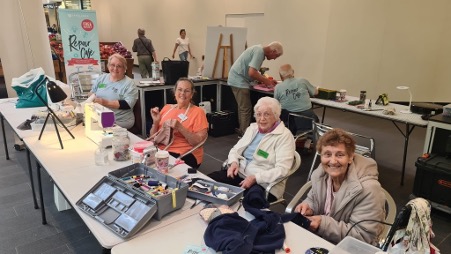
These bins help to reduce the impact of discarded fishing line and tackle on dolphins, water birds and other animals. Made of 100% recycled plastic, the bins provide a safe and easy way to dispose of unwanted fishing line and tackle.
This program was started up in Perth by the State Government River Guardians. Some of our local groups, Mandurah Volunteer Dolphin Rescue and Estuary Guardians, then took on this initiative, implementing and caring for the bins around our estuary.
Check out the Reel It In page on the River Guardians website for bin locations. You can also volunteer to adopt a bin and help with maintaining them.
If you'd like to get involved in looking after a Real It In bin, get in touch with Mandurah Volunteer Dolphin Rescue or Estuary Guardians.
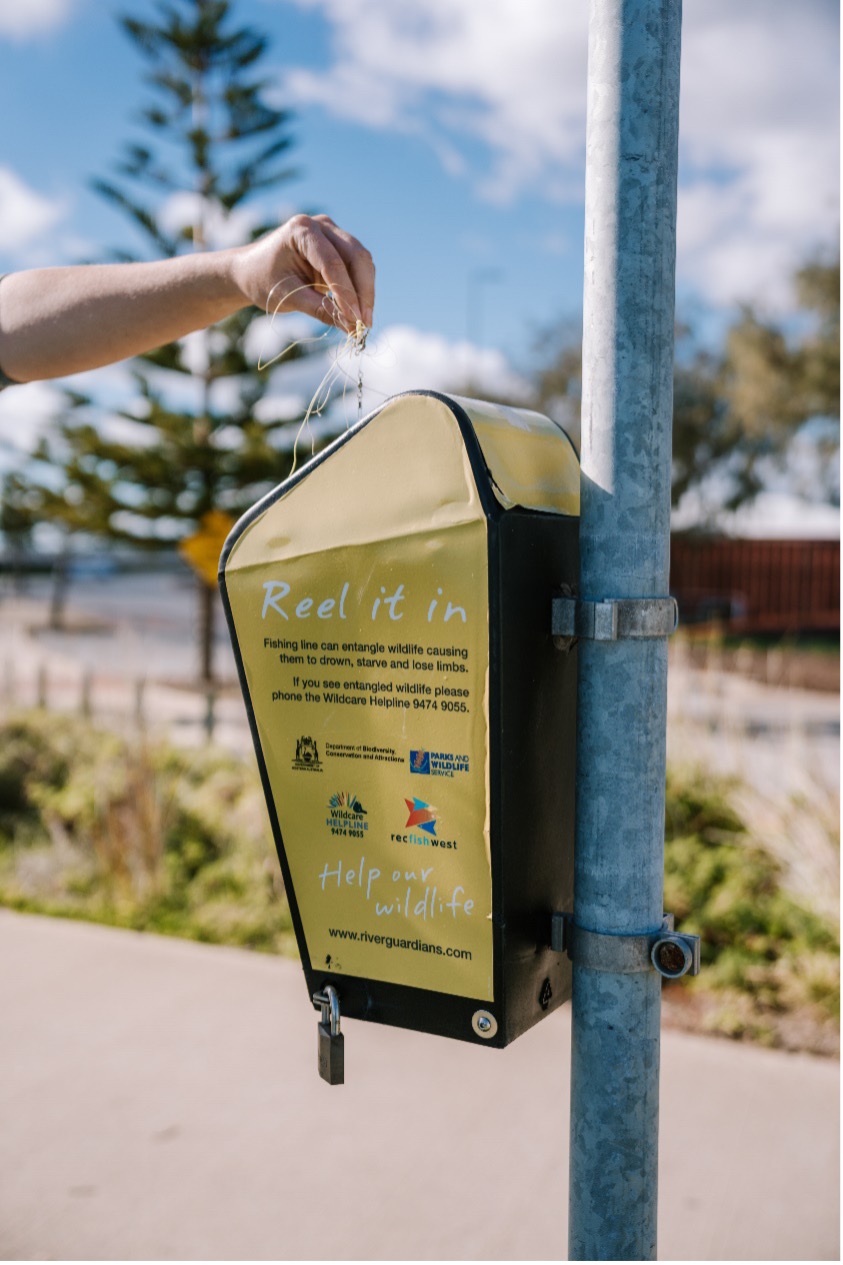
This is an anti-litter program developed by Keep Australia Beautiful that engages volunteers (individuals, community groups, business groups) to undertake coordinated litter clean-ups of designated sites in their communities. Sites include but are not limited to: roadsides, streets, parks, waterways, bush trails, beaches and wetlands.
Participants are provided with tools and support and receive an adoption certificate to acknowledge their commitment. Participants can register for a once-off clean up or on-going clean ups.
Learn more: https://www.wa.gov.au/service/environment/how-adopt-spot
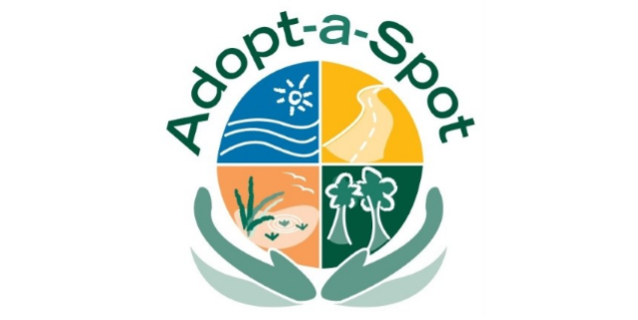
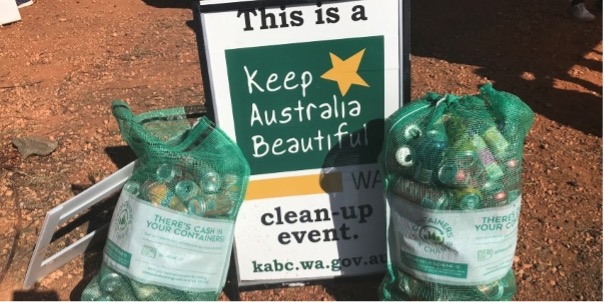
On the first Sunday in March, Clean Up Australia launch their campaign (Clean Up Australia Day). They have dedicated days for schools, businesses and community.
Register (and you’ll be covered by public liability insurance), and get a free Clean Up Kit
AND! You can organise a clean up, any day of the year.
Head to https://www.cleanup.org.au/ to find out more.
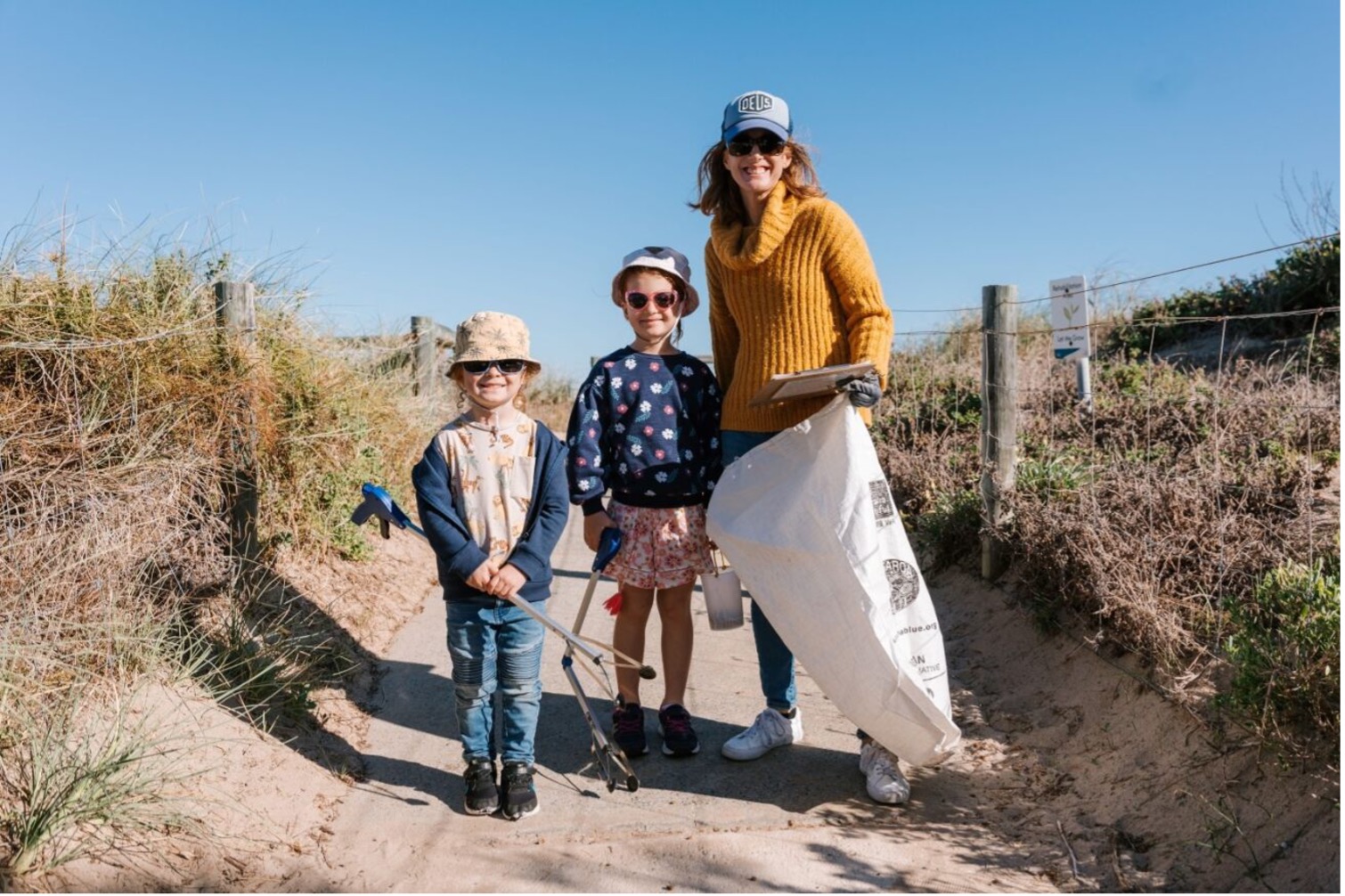
RecycleRight educates and encourages Western Australians residents and businesses to recycle, reduce their rubbish and learn all about waste.
Their website and app provide resources and education such as their A-Z Disposal Guide, Find My Nearest tool, and Resource Hub.
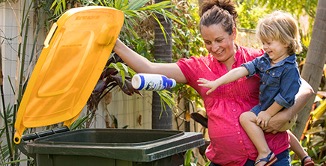
There are funding opportunities to enable businesses, community groups and locals to support waste avoidance, resource recovery and help us to protect our environment
Resource Hub
YourHome
Created by the Australian Government, YourHome is a guide to environmentally sustainable homes with case studies and free house designs including resources to help retrofit your houseVisit: https://www.yourhome.gov.au/
Adult:
- Is It Really Green? Everyday Eco-dilemmas Answered by Georgina Wilson-Powell
- Ending Plastic Waste: Community Actions Around the World
- Affluenza by Clive Hamilton
- Small Steps to Less Waste: Stories to Inspire Change: Claudi Williams
- Don’t Be Trashy: A Practical Guide to Living With Less Waste & More Joy by Tara McKenna
- Zero Waste Patterns: 20 Project to Sew Your Own Wardrobe by Birgitta Helmersson
- Too Good to Waste: Recipes to Save Money & Save the Planet by Sophia Young
- Forged & Recycled Art by Clare Youngs
- Plastic Free by Rebecca Prince-Ruiz
- Zero Waste Life by Anita Vandyke
- DIY Sustainable Projects by Audrey Love
- Home: DIY Recipes For a Tox-Free, Zero-Waste Life by Harriet Birrell
- 101 Ways to go Zero Waste by Kathryn Kellogg
Children:
- Recycle & Play: Awesome DIY Zero-Waste Projects to Make for Kids by Agnes Hsu
- Foodwise: A Kid’s Guide to Fighting Food Waste & Saving the Planet by Lucy Bell
- Don’t Waste Your Food: A Story About Why It’s Important Not To Waste Food by Deborah Chancellor
- Zero Waste by Megan Anderson
- War On Waste (ABC documentary series showcasing Australia’s waste, also available via City’s Libraries)
- Planet Shapers (10Play documentary series showcasing sustainability stories)
- The Australian Institute (recorded webinars and media articles)
- Wonderful Waste (YouTube series about innovation and reimagining waste)
- Toxic Garbage Island (SBS documentary regarding plastic waste in the ocean)
- Story of Stuff (film regarding the connections consumerism and sustainability)
There is numerous social media groups that can help provide online support and creative ways to deal with waste. Here a few:
- Compost Revolution
- Australian Association for Environmental Education (waste games and activities)
- Cleanaway’s School Education Program
- Coastal Waste Warriors (educational workshops, waste audits and clean ups)
- Clean Up Australia
- Containers For Change (downloadable educational guide)
- Resource Recovery Guide (virtual tours on their Canning Vale Centre)
- RecycleRight (educational worksheets)
- WasteSorted Schools (supporting schools with workshops, resources and grants)
- Clean Schools Program (learning about litter resources, games and activities)
- TerraCycle (free recycling programs for schools to participate in)
- PlanetArk Recycling Games
- Planet Ark Lesson Plans
- MobileMuster (curriculum guide, school toolkit and downloadable resources)
- B-Cycle (battery factsheets)
- Tangaroa Blue (education kit and factsheets around marine life and debris)
- OzHarvest FEAST Program (curriculum-aligned to engage students on food waste)
- Kitchen Garden Foundation (food education)
- Cleanaway’s Greenius Platform (modules surrounding waste and recycling)
- Plastic Free July
- Loose Parts
- Wipe Out Waste
- Plastic Oceans
- Eco-Schools
- ABC Education
- Keep Australia Beautiful Council
- Environmental Teaching Resources (covering climate change, biodiversity, conservation, land management and more)
